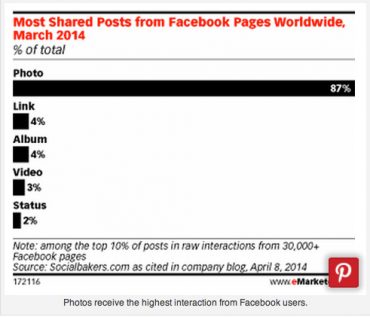
John Bleasby
Social media marketing for the working contractor (Part 2 of 5)
Canadian ContractorBuilding your business with Facebook
Does size matter? There are a lot of social networks out there, but none have sheer numbers like Facebook. With over 1 billion users world-wide, surely it’s the go-to platform to get your business message across! Yet at the same time, that crowded space means a lot of competition for visibility.
However, Marc Hill, founder and president of B2B digital marketing agency Digital Giants based in Barrie ON, tells Canadian Contractor that he believes Facebook can be an important part of a company’s marketing strategy if planned and executed correctly. “The most important thing a company can do with social media is build trust— to let people get to know you and learn what you do.”
 As with all social media, ‘Content is the Currency’
As with all social media, ‘Content is the Currency’
Facebook has day-long appeal with users. In fact, studies indicate that 1pm to 4pm are the best times to post. This is something Hill feels is important to understand. “Why do people go on to Facebook in the middle of the day? They do it to escape from their work and be entertained. They do it to gather news and learn something new.” This is important to keep in mind when creating a piece of content, given that only about three per cent of your Facebook content will be shared according to Hill. “If your content is engaging, it will show up in responses and ‘likes’. Engaging content sparks an emotion in the viewer, making them laugh, or teaching them something they didn’t already know.”
Get off on the right foot; register as a business
Although any smaller businesses may not need to register as a business Facebook page, that can change quickly. “If you are a single person operation, like Marc’s Kitchen Renovations, it might be better to use your own personal Facebook profile when starting out,” says Hill. “Once you get a bit larger, or have other people managing your profile, you might actually want to have both. You post to your business profile and have your personal profile sharing it.” That’s an interesting trick!
Business registration means access to analytics
In the longer term though, your company should probably be registered on Facebook as a business, says Hill. “The benefit of registering as a business page is that you get a lot more insights built in. Facebook will tell you exactly who, where, and what type of person is viewing — male or female, age, a lot of demographic information, and their interests. It will let you know how many people actually saw your posts, how many times they clicked on it, and how many times they shared. That’s information you won’t get with a personal profile page.” To maximize these advantages, Hill advises that business owners take the time to get set up correctly by completing all the information boxes and ensuring the links are correct.

There’s no doubt that adding a photo to your Facebook post creates increased interest
Facebook is a building process that takes time
Then you can move on to content. However stay consistent. “You don’t just post for two months and then decide it’s not working and stop,” says Hill. “It’s like building a data base. Those relationships take time. Start by posting maybe once a week and maybe move up from there.”
Curating your content
You don’t have to post your own content exclusively. That’s important to remember when you run out of your own ideas every now and then. If another post or a news item is relevant to your business, it can be on your site too. Likeable Local, a social media consultancy based in New York NY, has a specific strategy they recommend, what they call their 4-1-1 Rule. “For every six social media posts you create, four should be curated from third party sites, one should be a personal piece of content that you’ve created yourself (and is unique to your business), and one should be a high-value piece of content used to generate leads (and can be more self-promoting).” And don’t be too concerned about repeating the same type of messages over a period of time. “Often the customer is someone coming to you for the first time, so they’ll have the same type of questions as did someone you worked with maybe five years ago,” advises Hill.
Other tips for content
There is no end of advice for those curious about how to upgrade their Facebook content. Many talk about selling the sizzle, not the steak — telling a story instead of just stating facts. It’s also important to be positive; people are attracted to good news. Photos are a must. And here’s an interesting statistic; long posts don’t work better than short ones. In fact, Facebook posts with only 40 characters have 86 per cent more engagement than ones that go on and on.
Management of Facebook is the final piece of the puzzle
Likeable Media has some management thoughts for business owners. “Your Facebook page should not be left to an intern or someone ‘who thinks they know how to use Facebook’. It’s important to represent your company in a professional manner.” Direct oversight is probably required. It’s also important to remember that Facebook can be used to lodge complaints about your business or your service. How you handle complaints is crucial, Likeable Media says. “Your support staff must either rectify the customer’s issue on Facebook or direct them to a support e-mail address via your website. Deleting the user’s comment entirely is a big no-no and can backfire.”
Next installment, a look at Twitter.
It’s different from the other social media platforms, and needs special handling to be effective.
This is a 5 Part series.
To read Part 1 (Instagram) CLICK HERE
Go on to Part 3 (Twitter) CLICK HERE
Follow John on Instagram and on Twitter for notifications about his latest posts


Leave a Reply